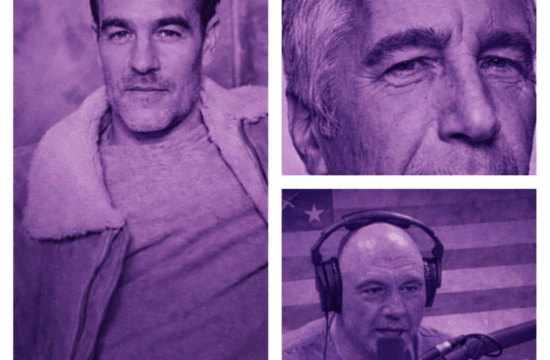This past summer, HBO released a two-part documentary called “And So It Goes,” chronicling the life and career of Billy Joel — a rock legend whose music has shaped nearly five decades. I’ll admit, I didn’t catch the documentary since I don’t have HBO. But in August, Apple Music released what they called the “musical companion” — a collection of over 150 tracks, including early demos, live performances, and many of the songs that made Billy Joel famous.
Thank you for taking the time to read this homily for the feast of the 25th SUNDAY IN ORDINARY TIME (September 21, 2025). Your support means a great deal to me, and I’m deeply grateful for the many who share these messages with their friends, families and social media followers. If you’ve found meaning in these words, I’d be grateful if you’d share them with others who might benefit.
And for those who prefer listening, you can find the audio version on SoundCloud HERE or subscribe to the podcast on iTunes HERE. Your comments, messages, and the way you’ve embraced these homilies continue to inspire me. Sincerely in Christ -Father Ji
I couldn’t help myself. I was a teenager in the Billy Joel generation. In high school and college, I went to at least four of his concerts. Listening to this new collection, I felt like I was stepping back into old memories. But what surprised me most wasn’t just the music. It was the stories threaded through the songs: stories of struggle, of mistakes, of triumph, and—in one case— of devastating betrayal:
At the height of his career, when Billy Joel was selling out stadiums and his music was everywhere, he discovered he’d been robbed—not by some stranger, but by his own brother-in-law, Frank Weber. This was the man entrusted with managing Joel’s finances, the man he should have been able to trust. Quietly and systematically, Weber siphoned off millions. The betrayal wasn’t a dramatic Hollywood heist, but a slow, calculated manipulation of the rules. When Joel finally uncovered the truth, he sued for $90 million. The courts agreed he’d been wronged—but in the end, Weber declared bankruptcy and dodged the full weight of justice. It was, in the eyes of the law, “shady but legal.”
That phrase—“shady but legal”—really gets under our skin, doesn’t it? Why is it that we’re so bothered by stories like that, even when, technically, no laws were broken? Why does something in us recoil when we hear about a betrayal like that? It’s because, deep down, our sense of right and wrong goes beyond what society’s rules or legal systems say. Our conscience has been shaped by something bigger: God’s law, the teachings of Christ, the Gospel. The whole idea of fairness and justice, the backbone of our civilization, comes straight from the commandments and the Christian principles that gave rise to Western civilization. Even people who don’t claim to be religious—when they complain about things being “shady”—are borrowing from a moral tradition rooted in scripture.
Yet, how often are those values just lip service? We know the commandments. We know what’s right and wrong. But just like in the days of Amos, we can be tempted to keep God’s law only when it’s convenient. Amos is unique among the prophets. He wasn’t a priest or a scholar; he was a shepherd, a regular working man, called out of the fields to deliver God’s message to the tribes of the North. His message was blunt: “You’re going through the motions. You say the prayers, you keep the Sabbath, but deep down you’re just waiting for it to be over so you can get back to business as usual—back to cheating, exploiting, chasing profits at any cost.” He imagines the people saying, “When will the new moon be over so we may sell grain, and the Sabbath, so that we may offer wheat for sale?” It’s the same spirit that lets people today justify actions that are “shady but legal.” As long as we follow the rules, we tell ourselves, what’s the harm? But God sees the heart. He sees when we twist His law to suit our own desires.
And that brings us to the Gospel—a parable that, on first hearing, leaves people scratching their heads. Why would Jesus tell a story about a dishonest steward, and then seem to praise his cleverness? Is he really holding up this white-collar criminal as a model for his disciples? Absolutely not. Jesus isn’t giving us permission to cut corners or bend the truth to get ahead. He’s not telling us to look for loopholes or justify what’s “shady but legal.”
But Jesus knows his audience. He uses parables, not to spoon-feed easy answers, but to get us to wrestle with hard questions. He wants us to pay attention, to dig deeper. And here, his point comes into focus with that line: “The children of this world are more prudent in dealing with their own generation than are the children of light.”
Look at the characters in the parable—the master and the steward. Both are fully invested in the game of this world. For them, life is a ledger: profits and losses, debts owed and debts forgiven, angles to play and assets to protect. They are single-minded—totally focused on what will benefit them, what will secure their future, what will keep them on top. In a sense, it’s not shocking. If you put your trust in the wealth and riches of the world, then everything is a calculation. Your choices—maybe even your integrity—start to revolve around what will bring you gain or keep you safe.
Jesus isn’t admiring their morals. He’s pointing out their focus. Imagine, he says, if the children of light—those who claim to follow God—showed the same dedication, the same attention, the same all-in commitment to the kingdom of God that the children of this world show in pursuit of their own goals. Imagine if we invested the same energy into living the Gospel, into loving our neighbor, into building justice and mercy, as the world does into climbing the ladder or padding the bottom line.
But what does it actually look like to live as a child of the light—to put the same focus and energy into God’s kingdom as the world does into its own interests? Sometimes it’s easier to point out what’s wrong than to show what’s right. But there are real-life examples, even in unexpected places.
A few years ago, I heard a story that’s stuck with me ever since. You might know the name Penn Jillette—he’s half of the famous duo “Penn and Teller,” and he’s an outspoken atheist. One night after a show, Penn was signing autographs, and a fan approached him. This wasn’t just a random encounter; this man was a genuine fan, someone who had come to several of Penn’s shows and admired his work for years.
The fan waited patiently for his moment. When he finally got to Penn, he shared his admiration and then did something most people would hesitate to do. He handed Penn a Bible. Inside, he’d written a heartfelt dedication. The man knew Penn was an atheist, but that didn’t stop him. He said, in essence, “I respect you, and because I care about you, I want to share what’s most important to me.”
Penn Jillette, who’s usually quick with sarcasm, was genuinely moved. He took to YouTube the next day, not to mock or belittle, but to praise the man’s sincerity. Penn said something that should make every Christian stop and think. He said, “How much do you have to hate somebody to believe that everlasting life is possible and not tell them that?” He was calling Christians out—not for being pushy or judgmental, but for not having the conviction and courage to share their faith with love and honesty.
It’s one thing to criticize the world for being too focused on money, power, or self-interest. But Jesus calls us to something more. He’s asking: Are we that mindful, that thoughtful, that passionate about what we believe? Do we share the good news, not out of obligation, but because love compels us? Are we living in such a way that our choices, big and small, reflect the light and hope of Christ?
This is the kind of single-minded focus Jesus is talking about—not the cleverness or shrewdness of this world, but a wholehearted dedication to what matters most. The fan’s act was simple, but it was brave. It was honest. It was loving. That’s what it looks like to be a child of the light: letting God’s love shape our actions, even when it’s awkward or uncomfortable, because we trust that His truth is worth sharing.
It’s no wonder so many of us feel cynical or let down these days. Deep down, we’re all tempted to live with one foot in each world. We want the best of both: to chase after comfort and success, but also to claim the promises of God’s Kingdom. We want to be “children of light,” but we hedge our bets, just in case.
Think about where our energy goes. For adults, it might be building a career, raising a family, putting away something for the future, or just trying to keep up with life’s demands. For those of you just finishing your confirmation retreat, maybe you’re looking ahead—wondering what comes next, what kind of person you’ll become. It’s easy for all of us to get caught up in what the world says is most important.
And don’t get me wrong—there’s nothing wrong with wanting to do well, to have a good job, to enjoy life, or to support your family. Work, family, and financial security are good gifts, and the people who lead us—teachers, employers, coaches, even priests—play important roles in our lives. But here’s the truth: every one of us, and every institution we’re part of, is flawed. None of it is immune to disappointment or failure. So if we build our lives only on those things—if that’s where our hope is—we’ll always be restless, always searching for something more.
That’s why Jesus tells us, “You cannot serve both God and mammon.” In other words: you can’t shape your life around the things of this world and expect a heart full of His peace. If we put our trust in what the world offers, we shouldn’t be surprised when it lets us down.
But when we put Christ first—when we let Him guide and shape our lives—everything else finds its right place. Sure, we’ll still have struggles and disappointments. But we can live with a deeper joy, knowing He never fails us. We can possess things, but not be possessed by them, because we know their value is nothing compared to the life Christ gives.
So as we leave here today, let’s be honest: What really consumes us? Where do we focus our energy, our hopes, our trust? Are we content to settle for what’s “shady but legal,” just because it’s easier or more comfortable? Or are we willing to let God’s Word—the truth of Christ, the justice Amos preached—actually change how we live?
Let’s not be like those Amos called out, just counting the minutes until Sunday is over so we can get back to business as usual. Let’s be people who let God’s law shape every decision, every relationship, every moment. Because in the end, it’s not the world’s rules that matter—it’s the truth that God has written on our hearts. Only one Master is truly worthy of our trust. Only in Him will we find a joy, a security, and a hope that never disappoints.











